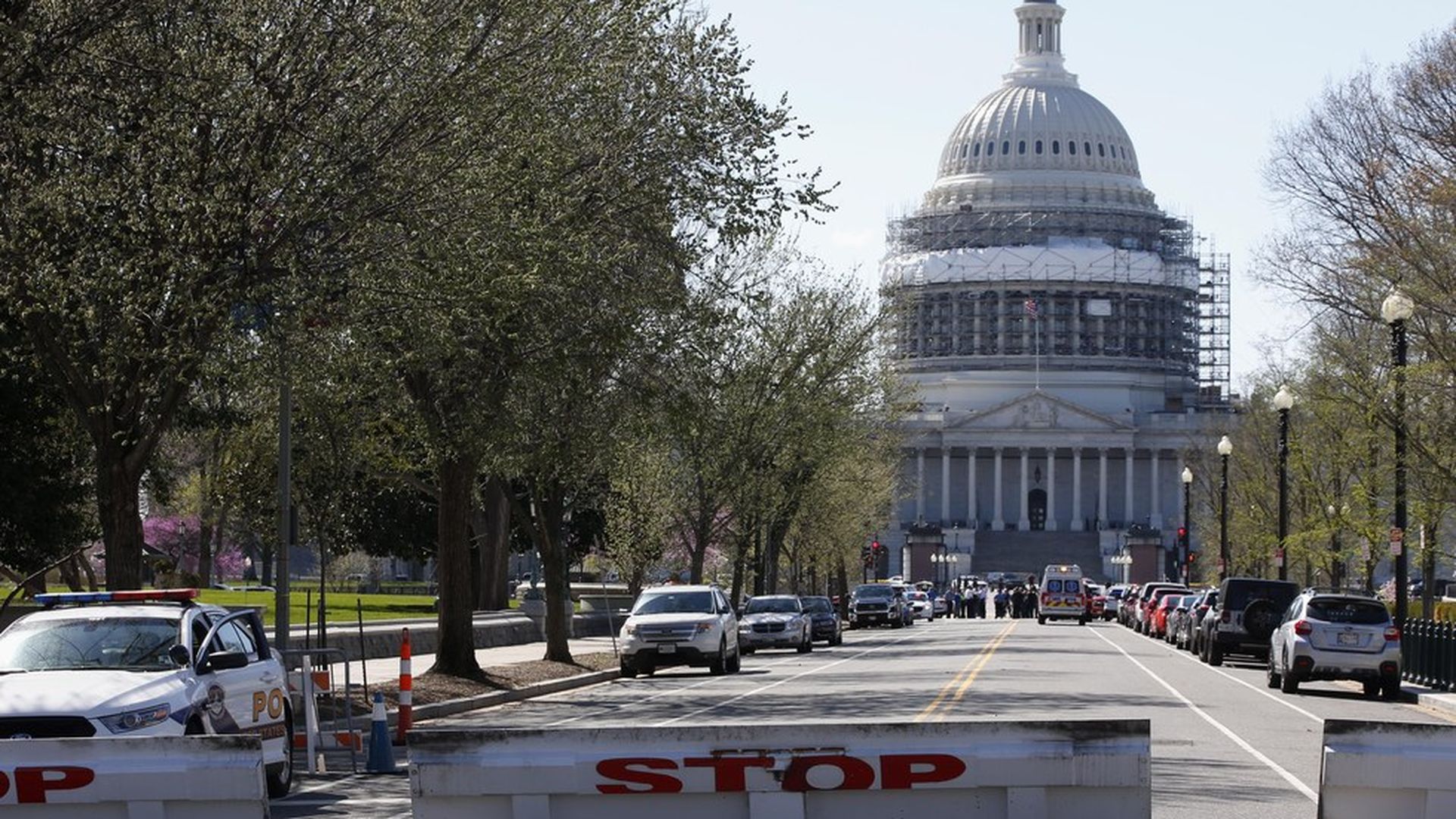What to expect from the partial government shutdown
Add Axios as your preferred source to
see more of our stories on Google.

Alex Brandon / AP
Without a spending bill, parts of the government began shutting down early Saturday for the third time this year. That means most federal services, including the Departments of State, Justice, Transportation, and Homeland Security, will close temporarily.
Why it matters: Even if you aren't a government employee, a shutdown can still affect you personally — from how your tax dollars are spent to which tourists sites you can't visit.
What could happen
420,000 federal employees will be working with delayed pay, per CNBC, including:
- Over 41,000 law federal law enforcement officers from various departments
- The majority of Homeland Security employees
- Around 54,000 Customs and Border Protection employees
- Several thousand Forest Service firefighters and National Weather Service forecasters
Another 380,000 federal employees would be furloughed, meaning they won't be going to work and won't be getting paid. This will include:
- 96% of NASA employees
- 86% of Commerce Department workers
- 30% of Transportation Department employees
- 80% of Forest and National Park Services
- 95% of Housing and Urban Development workers
What it means for you:
- Mail: The U.S. Postal Service is an independent agency that doesn't rely on tax dollars to operate, so your mail will still be delivered.
- Your wallet: When the government shut down for 16 days in 2013, it cost taxpayers $2 billion in lost productivity, according to the Office of Management and Budget.
- Tourism: All national parks, museums, and zoos will be closed. You might also have trouble getting a passport.
- Transportation: There could be some airline and train delays, as "non-essential" employees will be furloughed.
- Food stamps: You can still collect these. The Supplemental Nutrition Assistance Program (SNAP) is a mandatory entitlement program.
- Federal courts: The courts won't close their doors immediately, but they could be affected if a shutdown lasts more than 10 days, according to past guidance.
- Social security: You will still receive payments under the program, as it is deemed mandatory by the government.
- Loans: Whether you own a small business or are planning to buy a house, you'll have to wait if you need a loan from the government.
One government entity that won't be affected by a partial shutdown? The office of special counsel Robert Mueller, which is "funded from a permanent indefinite appropriation."
Go deeper: Trump's Christmas shutdown spooks GOP
